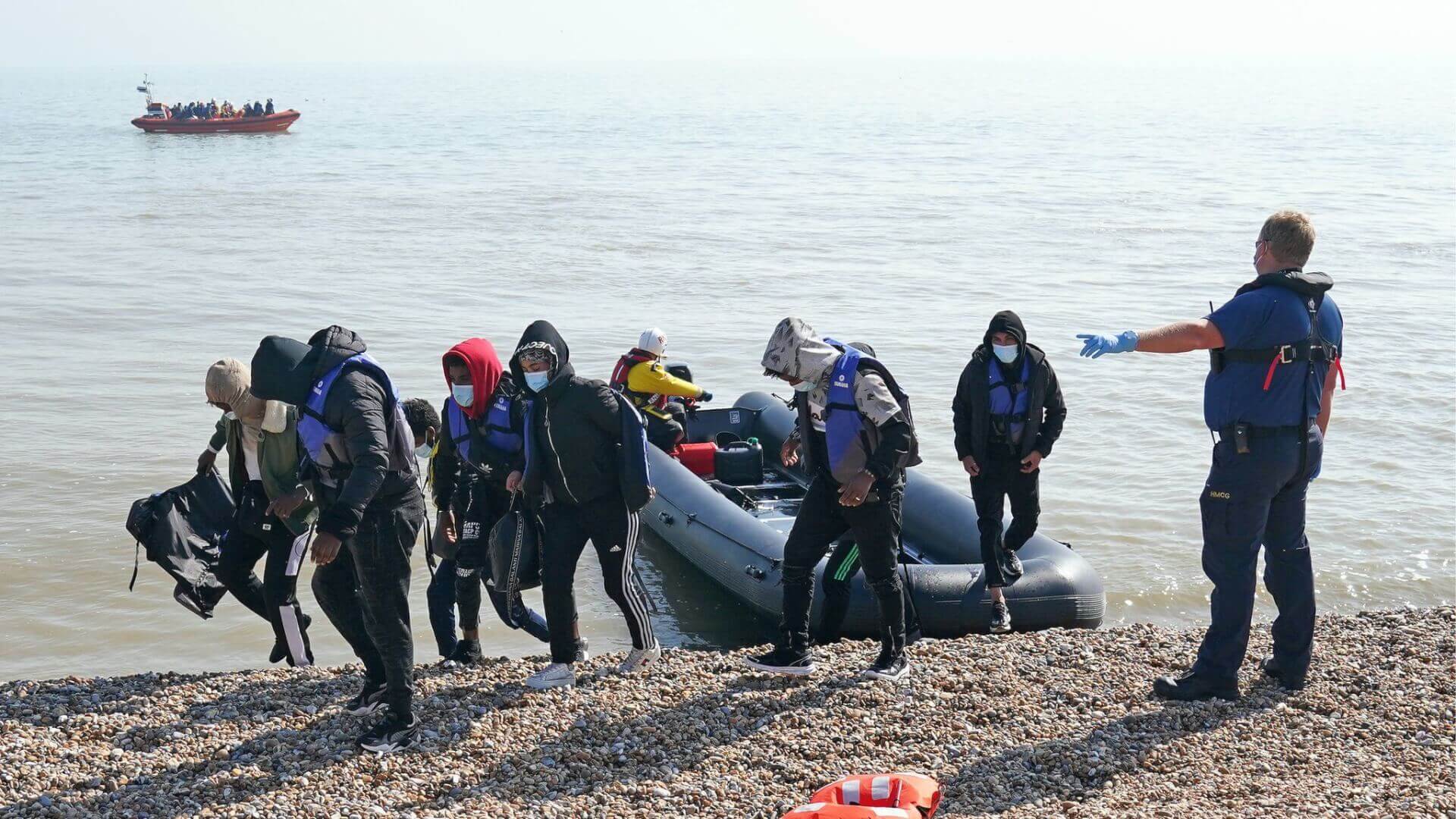French Interior Minister Gérald Darmanin on Tuesday announced that government will deport 44 migrants who disembarked an NGO ship in Toulon last Friday—after Italy refused to let it dock at its ports—to their country of origin “as soon as their health allows.”
Of the 234 migrants that arrived on the Ocean Viking ship, 44 of whom are minors, France permitted just 60 to apply for asylum. Hinting at the possibility of additional deportations, Darmanin said that authorities are still examining the remaining applications.
Italy earlier barred four ships from docking at its ports, leaving thousands of migrants stranded at sea for over two weeks. After pressure from France and Germany, the government eventually allowed three ships, except Ocean Viking, to dock.
France subsequently reneged on its promise to accept 2,500 migrants from Italy as a part of the European Union’s relocation scheme. However, Italy claims it has already taken a significant share of migrants and urged the rest of the bloc to accept responsibility.
Italian Interior Minister Piantedosi has previously insisted that NGOs’ home countries should accept the migrants, describing the ships as “islands” of the flag countries.
#OceanViking performed a 2nd rescue operation in intl waters off Libya. 108 people, including many women & children were found crammed on an unseaworthy rubber boat.
— SOS MEDITERRANEE (@SOSMedIntl) July 24, 2022
The survivors are exhausted after spending hours at sea under the sun.
195 survivors are now on our vessel. pic.twitter.com/ybah3Zpprv
European Commission Vice President Margaritis Schinas revealed to Politico that there are plans in place to hold a ministerial meeting to resolve these tensions.
Asylum applications in the EU have surged to a seven-year high, with 84,5000 applications in August alone, mainly from Afghans and Syrians.
In June, members implemented a “voluntary solidarity mechanism” that facilitates relocations, financial contributions, and assistance mechanisms.
Member states are urged to relocate 10,000 migrants from countries “most affected by migratory flows,” particularly coastal nations, on a yearly basis. However, the agreement is not obligatory and provides the Commission with no power to ensure enforcement. It also allows countries to opt out of the deal if they feel their migrant systems are under “disproportionate pressure.”
Barring countries such as Austria, Denmark, Poland and Hungary, 18 out of 27 members of the EU have agreed to participate in the scheme, alongside Switzerland, Norway, and Liechtenstein. Germany, for example, decided to take in 35,000 migrants.
We call for the immediate disembarkation, at the nearest place of safety, of all persons rescued and who are on board the Ocean Viking.
— European Commission 🇪🇺 (@EU_Commission) November 9, 2022
The situation onboard the vessel has reached a critical level and needs to be urgently addressed to avoid a humanitarian tragedy.
Statement ↓
Despite the agreement to relocate migrants from coastal countries, however, EU member states have relocated merely 117 asylum seekers, well below the target of 8,000 for June 2021-June 2022. Furthermore, only 13 out of 21 participating members have made relocation pledges.
Keeping this in mind, four Mediterranean EU countries – Italy, Greece, Malta, and Cyprus – released a joint statement last week saying they “cannot subscribe to the notion that countries of first entry are the only possible European landing spots for illegal immigrants.”
In particular, they condemned the use of private humanitarian vessels “acting in total autonomy from the competent state authorities” that brought rescued migrants to their shores.

